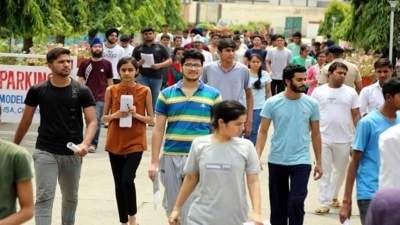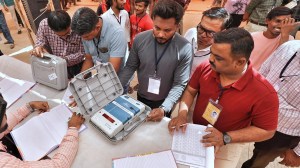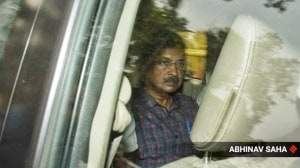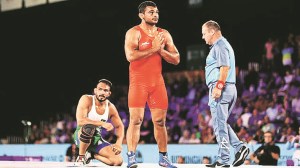- India
- International
Constituent Assembly didn’t want Article 370 to end like this, SC told
Senior advocate Sanjay Parikh read out statements of Constituent Assembly members, including Sardar Vallabhbhai Patel, to highlight the intention of the framers of the Constitution on the continuity of Article 370.
 Senior advocate Zafar Shah, who appeared on behalf of Jammu and Kashmir Bar Association said the Indian and the Jammu and Kashmir Constitution were parallel to each other.
Senior advocate Zafar Shah, who appeared on behalf of Jammu and Kashmir Bar Association said the Indian and the Jammu and Kashmir Constitution were parallel to each other.
The special status of Jammu and Kashmir previously guaranteed under Article 370 of the Constitution was frozen in time after the Constituent Assembly was dissolved, senior advocate Sanjay Parikh, appearing for People’s Union for Civil Liberties, told the Supreme Court on Wednesday.
“They (Constituent Assembly members) never wanted Article 370 to end like this. The Constituent Assembly represented the will of the people,” Parikh argued before the five-judge Constitution bench headed by Justice N V Ramana and also comprising Justices Subhash Reddy, Bhushan R Gavai, Surya Kant and Sanjay Kishan Kaul.
“Does that mean Article 370 only had historical value and no operational value since the Constituent Assembly ceased to exist?,” said Justice Kaul.
Parikh read out statements of Constituent Assembly members, including Sardar Vallabhbhai Patel, to highlight the intention of the framers of the Constitution on the continuity of Article 370.
Senior advocate Zafar Shah, who appeared on behalf of Jammu and Kashmir Bar Association said the Indian and the Jammu and Kashmir Constitution were parallel to each other.

“Article 370 is the bridge between the two. Doing away with it means you are snapping ties with the state,” Shah argued. “The concept of concurrence of the Jammu and Kashmir state came into being to avoid conflict between the two Constitutions. That cannot be replaced through a presidential order,” he added.
Shah told the court that even in 1950, when the term “Maharaja” was modified to mean “Sadar-i-Riyasat” in Article 370 through a Presidential order, the Jammu and Kashmir Constitution was amended to harmonise the change.
Recalling the history of Article 370 and the special status, Shah argued that constitutional autonomy is guaranteed for Jammu and Kashmir. He rhetorically asked if the Governor’s consent obtained to dilute Article 370 is “the state’s consent to destruct itself?”
Both Parikh and Shah sought that the cases challenging the scrapping of the special status of Jammu and Kashmir be referred to a larger bench of seven judges since two previous judgments that dealt with Article 370, both delivered by five-judge benches, are in conflict.
The lawyers argued that the1959 decision in Premnath Kaul v State of Jammu and Kashmir and Sampat Prakash v State of Jammu and Kashmir in 1970 which dealt with the significance of the Jammu and Kashmir constituent assembly need to be revisited. While in 1959, the court had ruled that the nature of the relationship between India and Jammu and Kashmir needed to be decided by the Jammu and Kashmir constituent assembly, the later decision did not consider the precedent in its decision.
However, the bench said a reference to a larger bench will only be made if the petitioners successfully demonstrate a conflict between the two judgments.
Apr 18: Latest News
- 01
- 02
- 03
- 04
- 05





























